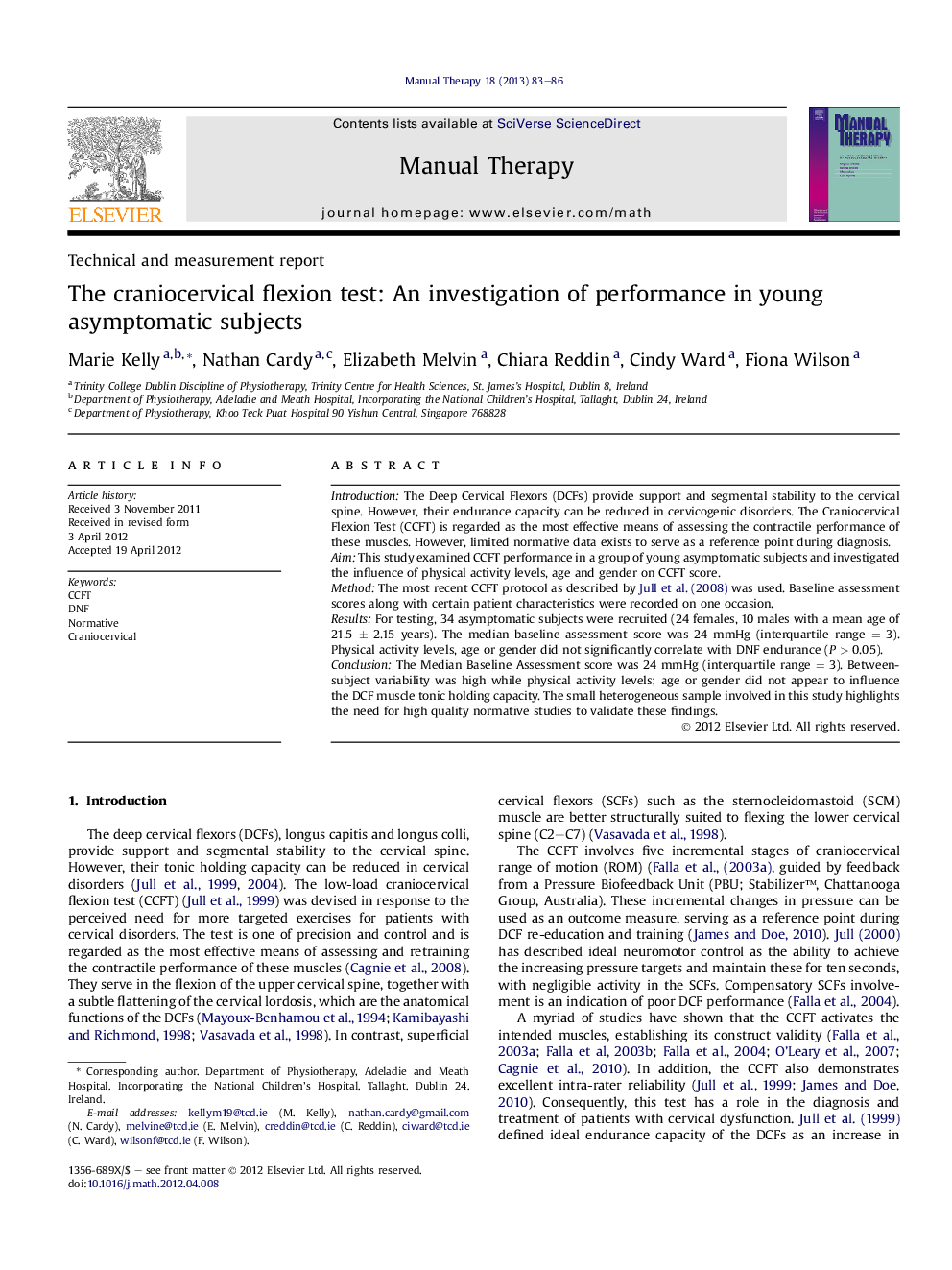| Article ID | Journal | Published Year | Pages | File Type |
|---|---|---|---|---|
| 2625283 | Manual Therapy | 2013 | 4 Pages |
IntroductionThe Deep Cervical Flexors (DCFs) provide support and segmental stability to the cervical spine. However, their endurance capacity can be reduced in cervicogenic disorders. The Craniocervical Flexion Test (CCFT) is regarded as the most effective means of assessing the contractile performance of these muscles. However, limited normative data exists to serve as a reference point during diagnosis.AimThis study examined CCFT performance in a group of young asymptomatic subjects and investigated the influence of physical activity levels, age and gender on CCFT score.MethodThe most recent CCFT protocol as described by Jull et al. (2008) was used. Baseline assessment scores along with certain patient characteristics were recorded on one occasion.ResultsFor testing, 34 asymptomatic subjects were recruited (24 females, 10 males with a mean age of 21.5 ± 2.15 years). The median baseline assessment score was 24 mmHg (interquartile range = 3). Physical activity levels, age or gender did not significantly correlate with DNF endurance (P > 0.05).ConclusionThe Median Baseline Assessment score was 24 mmHg (interquartile range = 3). Between-subject variability was high while physical activity levels; age or gender did not appear to influence the DCF muscle tonic holding capacity. The small heterogeneous sample involved in this study highlights the need for high quality normative studies to validate these findings.
